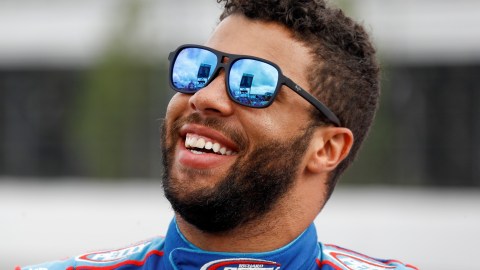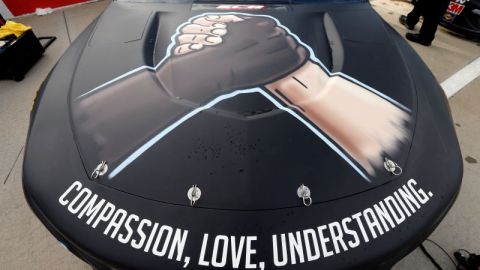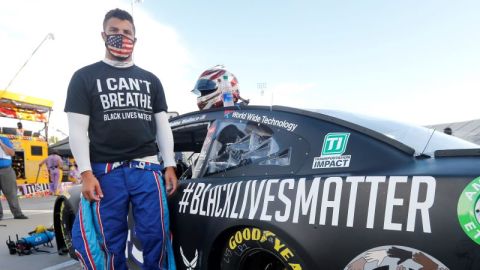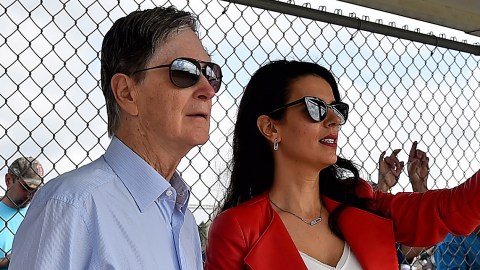 BOSTON — Bad teams seldom have sterling chemistry, but there are levels of disgust. The Charlotte Bobcats, for instance, have hung tough as their promising start has turned into another lottery-bound season. Celtics coach Doc Rivers summed up the general consensus among opposing coaches earlier this week when he marveled at the Bobcats’ resilience, saying: “They just keep playing.”
BOSTON — Bad teams seldom have sterling chemistry, but there are levels of disgust. The Charlotte Bobcats, for instance, have hung tough as their promising start has turned into another lottery-bound season. Celtics coach Doc Rivers summed up the general consensus among opposing coaches earlier this week when he marveled at the Bobcats’ resilience, saying: “They just keep playing.”
The Phoenix Suns, by contrast, have not kept playing — at least, not very well. After a loss here last week, Suns players seemed to suggest serious issues with the morale in their locker room.
“We always have lapses,” Suns center Luis Scola said. “Sometimes it happens early, sometimes it happens a little bit later. Sometimes it’s the first unit, sometimes it’s the second unit, but it always happens. And we just lose games because we couldn’t fix it. Even in the games we’ve won, it happens.”
“Sooner or later,” Scola added, “we believe something bad’s going to happen.”
On the heels of Wednesday’s loss, their seventh in nine games since New Year’s, the Suns and head coach Alvin Gentry reportedly agreed to part ways on Friday. Given the presence of negativity like Scola’s, the change would seem to make some sense. One of a coach’s first responsibilities, after all, is getting his players to believe they can actually win.
As with most midseason coaching changes, though, the timing is more a condemnation of ownership and management than of the coach himself. Some close to the team observed Gentry’s exit as a shift to a long-term rebuilding effort, yet Gentry was the first person in the organization to publicly suggest going with younger players. Up to this point, he really did not have that option. For instance, he could not have begun the season starting rookie Kendall Marshall at point guard over Goran Dragic, one of the Suns’ major offseason acquisitions, without raising some hackles.
Beyond a move of that nature, Gentry should have done what, exactly? He already decreased Michael Beasley’s playing time in favor of P.J. Tucker, a 27-year-old second-year forward who at least plays defense. Gentry is not the one who built a backcourt that relied heavily on Shannon Brown and Sebastian Telfair. He (presumably) is not the source of a rumored trade that would send Jared Dudley to Memphis in exchange for Rudy Gay, a move that would be lateral at best.
The Suns parting ways with Gentry is not the travesty, say, that the Magic’s dismissal of Stan Van Gundy was. Gentry is a perfectly fine NBA coach, if not a franchise-altering one, and he was good enough to lead the Suns to the Western Conference Finals in 2010. But his departure continues to send the Suns in the direction they have been going since Robert Sarver became majority owner in 2004. That is, downward.
Under Jerry Colangelo, the Suns were a model franchise despite sitting just outside the top 10 media markets in the U.S. From 1988 to 2001, the Suns made the playoffs every season and advanced past the first round seven times. The organization rebuilt not just through the draft (Dan Majerle, Michael Finley, Steve Nash, Shawn Marion, Amar’e Stoudemire) but also by buying low in trades (Kevin Johnson, Charles Barkley, Nash again). Since Sarver entered the picture, the transaction history is much less impressive.
During the first three years of the Sarver administration, the Suns drafted Luol Deng, Nate Robinson, Marcin Gortat, Rajon Rondo — and traded all of them on draft day.
Instead of the foundation of a pretty good team, Gentry was left with a squad of flawed castoffs (Scola, Beasley, Telfair), promising yet unproven new additions (Marshall, Dragic) and a few solid veterans who would be enormous helps to winning teams (Dudley, Gortat, Jermaine O’Neal).
In fairness, Gentry deserves blame for failing to stimulate a winning attitude in Phoenix. But considering the collection of talent he was given, it is unclear if that is even what Suns management wanted. This was a team that was built to lose, and Gentry’s biggest blunder may have been not realizing it earlier. His players seemed to know it long ago.
Have a question for Ben Watanabe? Send it to him via Twitter at @BenjeeBallgame or send it here.



